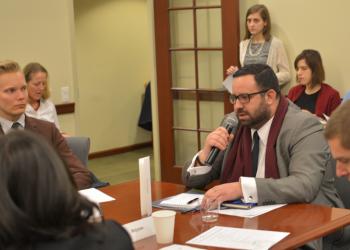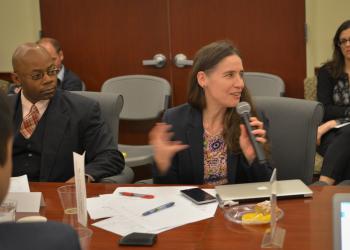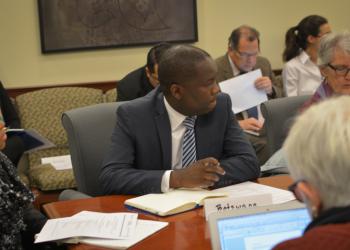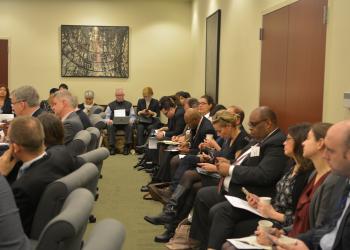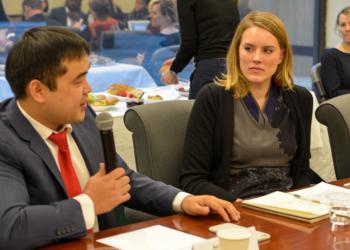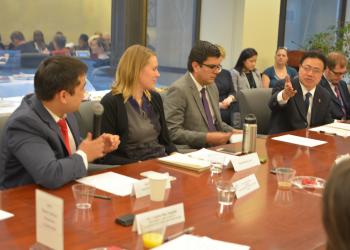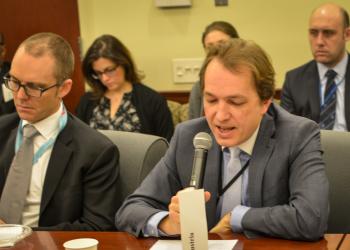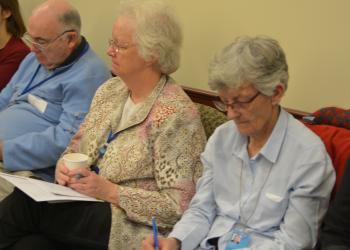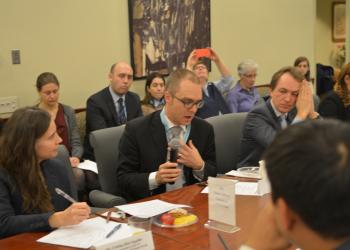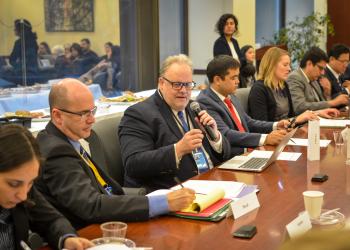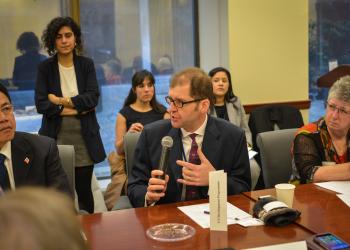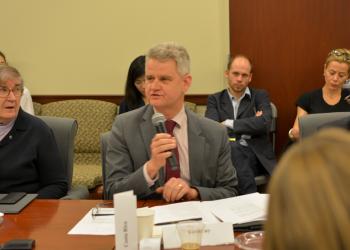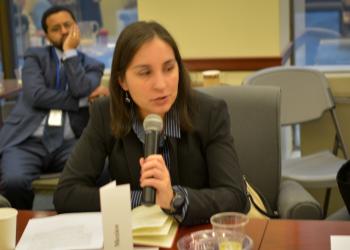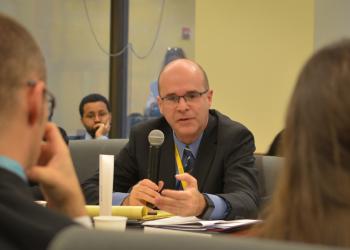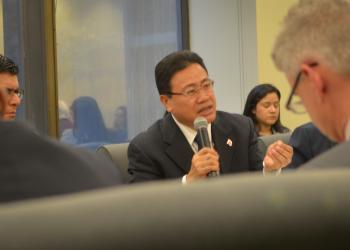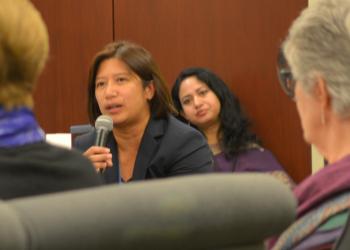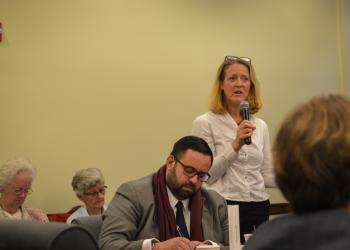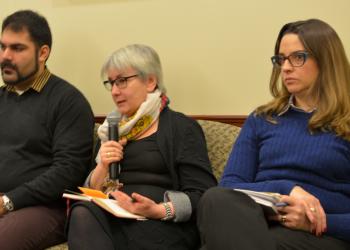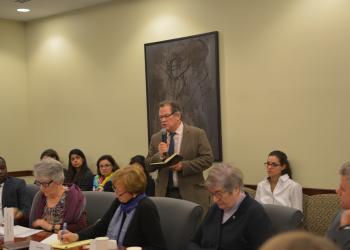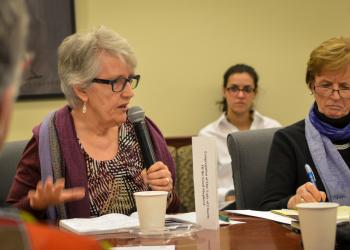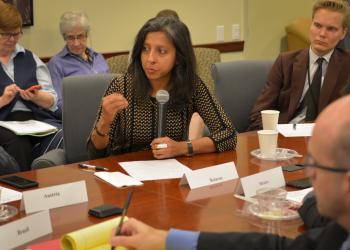Understanding voluntary national review in implementing Agenda 2030
A year and a half ago, the United Nations adopted Agenda 2030, an ambitious plan for global development.
Now the task of implementing the 17 Sustainable Development Goals (SDGs) at the heart of the plan falls in large part to the national governments, where policies to eradicate poverty, reduce inequality, and protect the environment will be forged and promulgated.
Agenda 2030 also calls for each country, in coming years, to report on its progress through a mechanism known as national voluntary review.
In an effort to consider and discuss the challenges that governments face in conducting such reviews, the Baha'i International Community hosted a breakfast meeting for diplomats, UN officials, and representatives of civil society on 26 January 2017. It was the 36th such meeting at the BIC on the post-2015 development agenda since July 2012.
The idea was to explore initiatives for participatory mechanisms in the reviews, and consider ways to strengthen monitoring and accountability at local, national, regional and international levels.
Keynote speakers included H.E. Mr. Jürgen Schulz, Ambassador, Deputy Permanent Representative Permanent Mission of Germany to the United Nations, and Ms. Kathryn Tobin, policy coordinator, Regions Refocus.
Amb. Shultz, whose country participated in the first round of voluntary national reviews last summer, said Germany believes that efforts to monitor a country’s progress at implementing Agenda 2030 are critical to the plan’s overall success.
Moreover, he said, the government feels any such national review should be very inclusive, with the participation of a wide range of stakeholders from civil society, business, and academia, among others.
To that end, he said, Germany has launched the “Partners for Review” process, a comprehensive platform for continued dialogue. Its objectives include providing space to facilitate learning and exchange insights, networking to build up, mobilize, and share expertise on new and emerging issues, generating practical knowledge, and stimulating global partnership.
Ms. Tobin of Regions Refocus praised Germany’s Partners for Review process. “It is so important because of the space it provides for dialogues,” she said. “Pure learning, informal conversations, and small working groups are a good model that should be applied and taken into the High Level Political Forum (HLPF).”
An initiative housed at the Dag Hammarskjöld Foundation, Regions Refocus fosters regional and feminist solidarities for justice through policy dialogue between civil society, governments, sub-regional alliances, and the UN.
Ms. Tobin added that her organization believes that real systematic structures for civil society participation are required at every level as Agenda 2030 moves forward.
“Independent autonomous organizations working on the ground should have space at regional, national, and global levels to share what they are learning,” she said.
Serik Tokbolat, a representative of the BIC to the UN and the moderator of the meeting, said participants seemed eager to learn about voluntary national reviews and to understand better how they might be conducted.
“We hope to sponsor future breakfast meetings on the subject of voluntary national reviews, focusing more in depth on various sub-topics,” said Mr. Tokbolat.
As with previous breakfast meetings, participants engaged in an open dialogue, using the Chatham House Rule, after the keynote addresses.
The meeting was co-sponsored by International Movement ATD Fourth World, the Permanent Mission of Germany to the UN in New York, and Regions Refocus.
Notes of the meeting, which was officially titled “Strengthening Accountability through Collaboration in National Voluntary Reviews,” can be read here.
